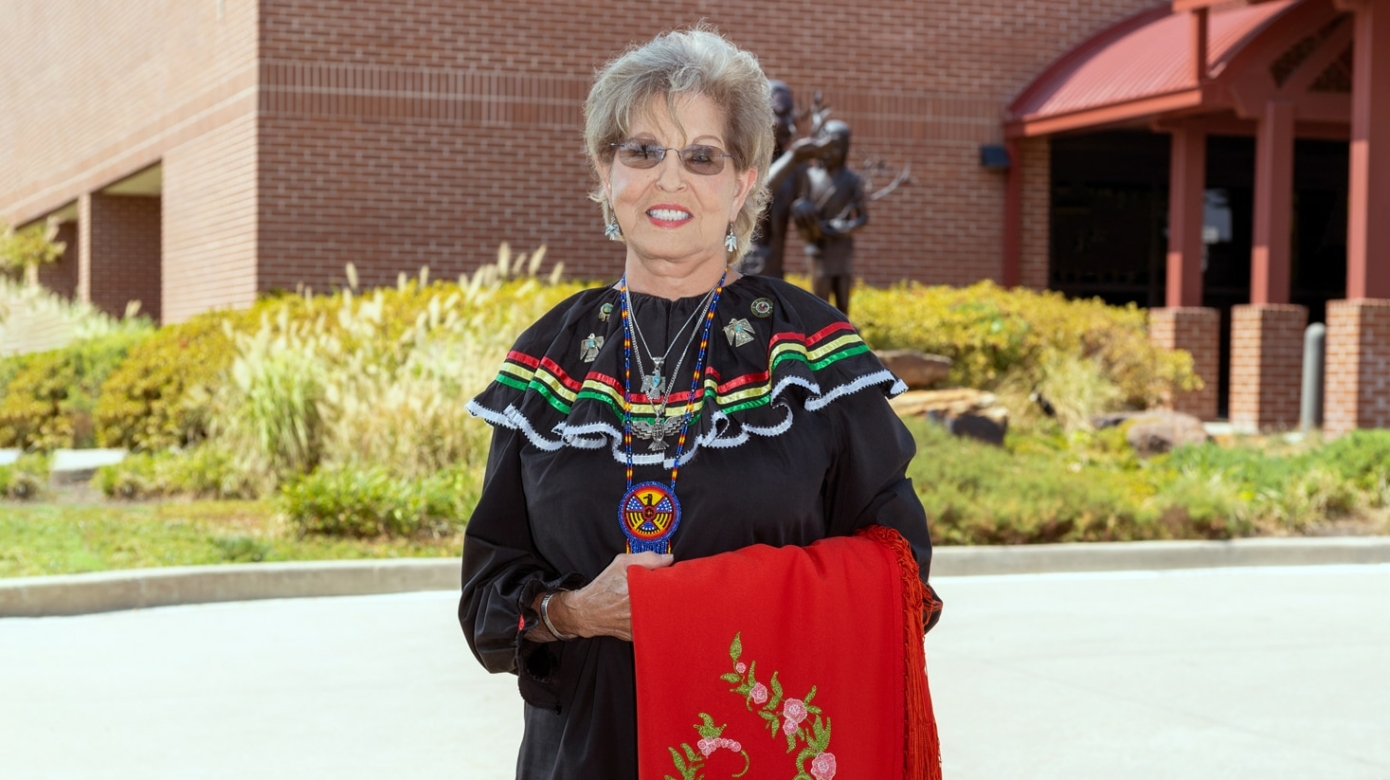The Indian Health Care Resource Center of Tulsa celebrated Carmelita Wamego Skeeter’s 45 years of service to the organization and the Native American community. As a proud member of the Citizen Potawatomi Nation and descendant of the Wamego family, she speaks strongly in support of Native American and minority health needs.
Skeeter’s interest in health care stems from experiences in her childhood. Being the eldest sibling, she became a caregiver at an early age.
“When you’re the oldest of 13 children, something’s always going on. They need health care,” she said in a 2017 Hownikan interview. “And when you’re working with the poor, there’s always the need for health because if you’re not healthy you can’t work, you can’t be mobile, you can’t do anything.”
It was only natural that she would take the lessons she learned as a child and adapt them to her life’s mission. It comes organically for her to feel responsible to represent those who cannot speak for themselves, to seek help for those who do not know where to begin, and to advocate for equality when others are afraid to speak up.
Skeeter began her career at IHCRC in 1976 after she helped survey residents to assess health needs of the local urban Native population in her hometown of Tulsa. The Oklahoma-born Skeeter volunteered in her church’s social action group through a program called Neighbor to Neighbor. Her participation in the program, based in north Tulsa, helped residents in need gain access to public assistance, housing and other social welfare programs.
Survey results showed medical needs of Tulsa’s Native Americans were not being met. When IHCRC hired her as one of its four original employees, the agency only provided referral services. Within a year, the center offered its first medical services. During her tenure with IHCRC, Skeeter has worn many hats, including clinic administrator and, since 1989, chief executive officer.
Over the more than four decades of her career, she’s been recognized by numerous organizations for her work. In 1998, she was named Outstanding Community Leadership of the Year by the Oklahoma Native American Business Development Center and has been recognized for her significant contributions in improving the health of American Indian and Alaska Natives by the National Indian Health Board in 1999.
She has also received recognition from the National Council of Urban Indian Health, YWCA and many other organizations. Most recently, the City of Tulsa issued a Carmelita Skeeter Day proclamation in 2019 to honor her service to Tulsa’s urban Native community.
“She is admired and respected by the IHCRC patients, former and current staff, and the board of trustees,” said IHCRC’s John Young. “Indian health care would not be such a vital resource to the Tulsa community without the vision and leadership of Carmelita Wamego Skeeter.”
About Indian Health Care Resource Center of Tulsa
Indian Health Care Resource Center of Tulsa, Inc. seeks to provide quality, comprehensive health care to Tulsa-area American Indian people in a culturally sensitive manner that promotes good health, well-being and harmony. Utilizing a patient-centered, multidisciplinary, medical home approach, IHCRC offers a full range of health and wellness services tailored to the Native community. Services include medical, optometry, dental, pharmacy, transportation, behavioral health, health education and wellness, substance abuse treatment and prevention, and youth programs focused on traditions, health and leadership skills. With more than 18,000 active patients representing in excess of 125 tribes, IHCRC believes in patient-first, quality care. This commitment to quality is evident in its accreditation by the Accreditation Association for Ambulatory Health Centers and certification as a medical home by the AAAHC. Through the highest level of care, IHCRC seeks to improve the general health status and reduce the incidence and severity of chronic disease by engaging the Native community in ongoing health promotion, prevention and disease management activities. IHCRC is a 501(c)(3) organization funded through a contract with Indian Health Services, state and federal grants, private foundations and donors, and its annual fundraiser, The Dance of the Two Moons.

